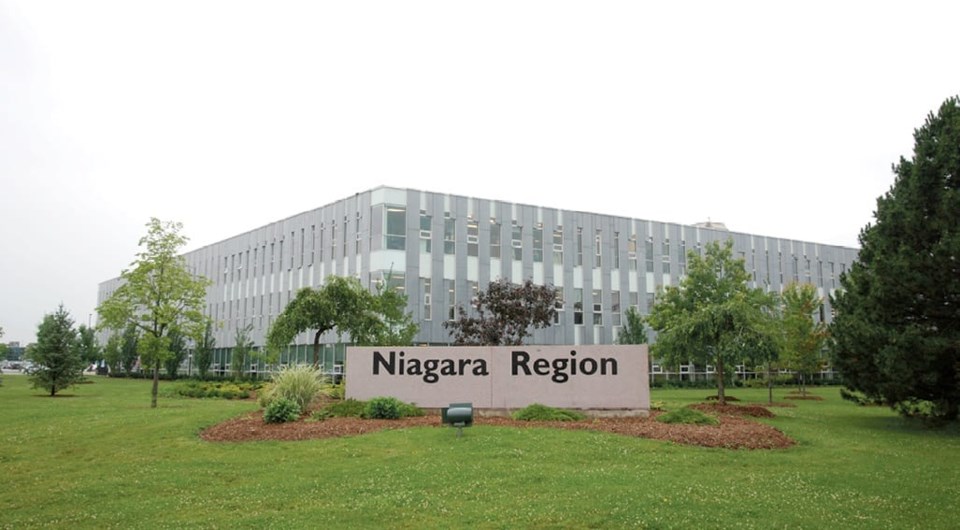BY BRUCE TIMMS Special to the Voice
Niagara Regional Council has added to inflation pressures on property taxpayers at their Nov. 4 budget meeting. council agreed to 5.4 percent increase for waste management despite reduction in pick-up service, and 5.15 percent increase for water and wastewater. The police budget calls for a 4.9 percent increase and council requested the board to reduce their $168.9 million request by $500,000.
Homeowners will see increases in property taxes for police and waste management above the inflation rate for 2022, and very likely water bill increases above inflation rates once municipalities have added their increases.
The Region’s Treasurer, Todd Harrison, explained in a memo that the proposed police budget would require a 1.1 percent increase in addition to the 4.1 percent proposed in the Region’s budget strategy approved in June of this year. He also pointed out that while the overall levy for 2021 increased by 1.8 percent, the Police Board had a 4.3 percent in 2021. Council was forced to choose reductions in other departments to support police and achieve a 1.8 percent overall levy increase. The levy increase will be 5.2 percent if council chooses to accept the police budget without reducing the budget of any other budget area. The Region has the option of reducing the Regional Housing budget, or Public Works or Social Services, or Senior Services, but as noted above it has already agreed to increase waste management by 5.4 percent and water and wastewater by 5.15 percent. Reducing the Public Health budget may also be a choice if the pandemic subsides in 2022.
The Budget Committee requested the Police Board consider removing $500,000 allocated to capital reserves because of the extra pay week expected in 2023. How the capital reserve is related to an operational compensation issue is not explained beyond the idea that it is a convenient account to park money which they expect to need in 2023.
Even with $500,000 taken out, the cost for policing will go up by 4.6 percent.
Chair Bradley pointed out more service costs more money, and police service is adding 13 full-time employees, at a cost of $700,000 within the proposed budget.
The Police Board’s presentation pointed out that they are presenting a police budget without a police contract for 2021 or 2022. Chief McCullough cites police contract settlements in Peel, Hamilton, and Halton as precedents that give the board guidance on what they should allow in the 2022 budget. The Waterloo Region Police Board and Police Association reached an agreement on September 17 of this year on a retroactive contract going back to January 1 2020, and extending to the end of 2024, averaging a 2.14 percent increase per year for fiveyears . The five-year deal removes the problem of budget estimates for police compensation in Waterloo Region budgets for the next three years.
Councillor Heit said taxpayers need relief in this 2022 budget and made the motion to request the Police Board cut $500,000 from their budget. The wisdom in his request is that the next police budget will be set by the next council and next police board, with municipal elections happening in October 2022. The new council and new board members may have to be reminded that $500,000 in capital reserve is not for capital but for payroll. The board might even have a labour contract settled for 2021 and 2022 by then.
Three elements of the Regional budget have exceeded inflation and appear to increase inflation for homeowners and rental property owners in 2022. Regional Council set budget guidance in June at 4.1 percent when inflation of the CPI was 3.7 percent.
However, by October 20 reports of annual CPI rates for August and September were 4.0 percent and 4.4 percent from Statistics Canada. The CPI for the year has been trending higher since February, at 1.1 percent, April 3.3 percent, May 3.7 percent, with a dip in June to 3.2 percent, July 3.5 percent, with the average annual rate now at 2.944 percent.
Operational department budgets, Niagara Housing and Conservation Authority budgets, and final police budget will be considered at the November 25 budget meeting. The question of the $500,000 reduction to the police budget will also be considered at this meeting.
Regional Council has some tough choices to make, with inflation rising quickly in many areas of daily living. How much do they choose to inflate property taxes and therefore the cost of housing for so many families in Niagara? ◆
Bruce Timms was a Regional councillor for St. Catharines from 1991 to 2018.



